Behind every scientific breakthrough lies a world of precision, process, and technology that most people never see. Yet, many research projects face setbacks due to outdated lab systems, human error, or a shortage of skilled lab professionals. This is where science laboratory technology steps in playing a crucial role in ensuring accuracy, safety, and innovation. At The Revolver News, we dive deep into how SLT supports critical work in healthcare, pharmaceuticals, and environmental research. This article explores the impact of laboratory technology on modern science, the challenges it helps overcome, and how it’s shaping future research careers.
What is Science Laboratory Technology?
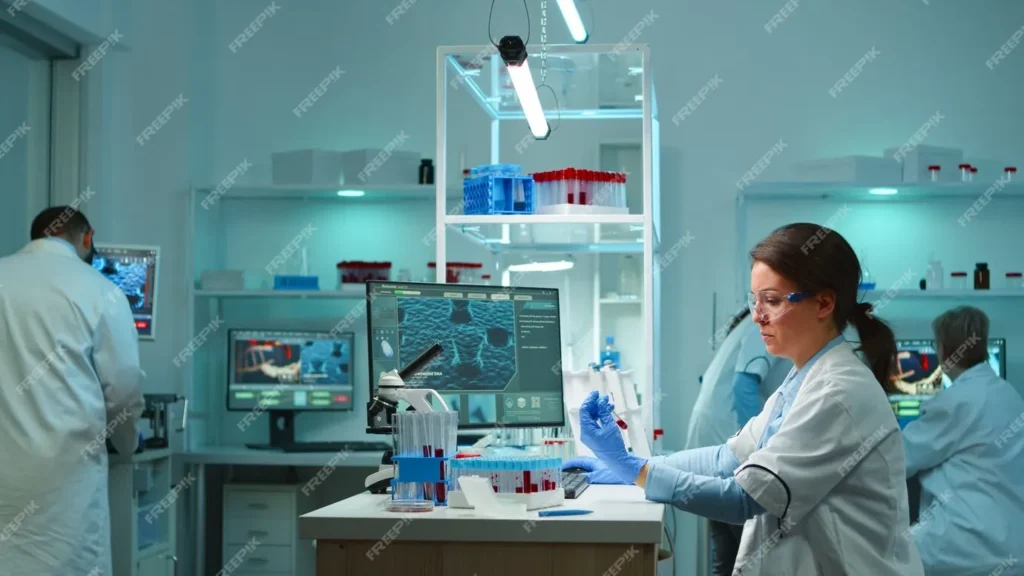
Science laboratory technology encompasses the technical skills, knowledge, and methodologies used to conduct scientific experiments, analyze data, and maintain laboratory equipment. It bridges the gap between theoretical scientific concepts and their practical applications in research settings.
Core Components of Laboratory Science Technology
Laboratory science technology integrates several key components:
- Equipment operation and maintenance: Laboratory technicians must understand how to operate, calibrate, and maintain specialized laboratory equipment ranging from basic tools to sophisticated analytical instruments.
- Testing and analysis: Conducting tests on biological samples, chemical compounds, and other materials following standardized protocols.
- Data collection and management: Recording, organizing, and analyzing experimental data with precision and accuracy.
- Quality assurance and control: Ensuring the reliability of test results and adherence to safety standards in laboratory settings.
- Research support: Assisting scientists and researchers in executing experiments that contribute to scientific discovery.
The Critical Role of Laboratory Technology in Scientific Research
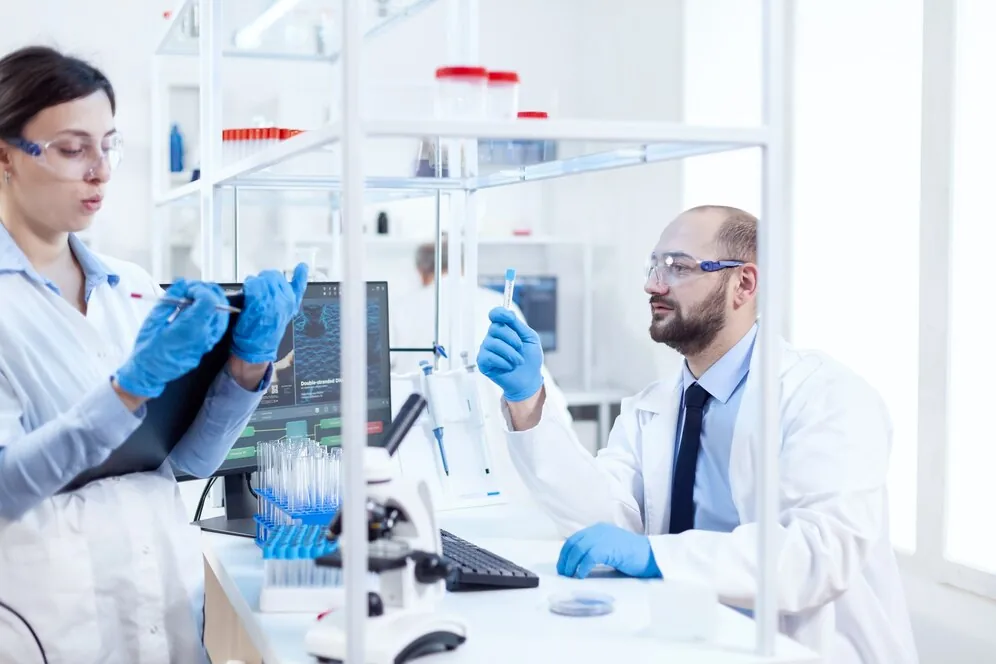
The advancement of scientific research depends heavily on the expertise of laboratory technicians and the technology they employ. Their work enables groundbreaking discoveries across numerous fields.
How Lab Technicians Support Research
Lab technicians serve as the hands and eyes of the research process, taking on essential responsibilities:
- Sample preparation and analysis: Processing and analyzing biological samples, chemical compounds, and other materials to generate reliable data.
- Protocol implementation: Following detailed experimental procedures with precision to ensure reproducible results.
- Instrumentation expertise: Operating sophisticated equipment such as gas chromatographs and high-performance liquid chromatographs (HPLC) to analyze specimens.
- Documentation: Maintaining meticulous records of procedures, observations, and results.
- Problem-solving: Identifying and addressing technical issues that may arise during experiments.
According to the American Society for Clinical Laboratory Science, laboratory professionals perform an estimated 14 billion laboratory tests annually in the United States alone, highlighting their substantial contribution to research and healthcare.
The Impact of Laboratory Science Technology on Various Fields
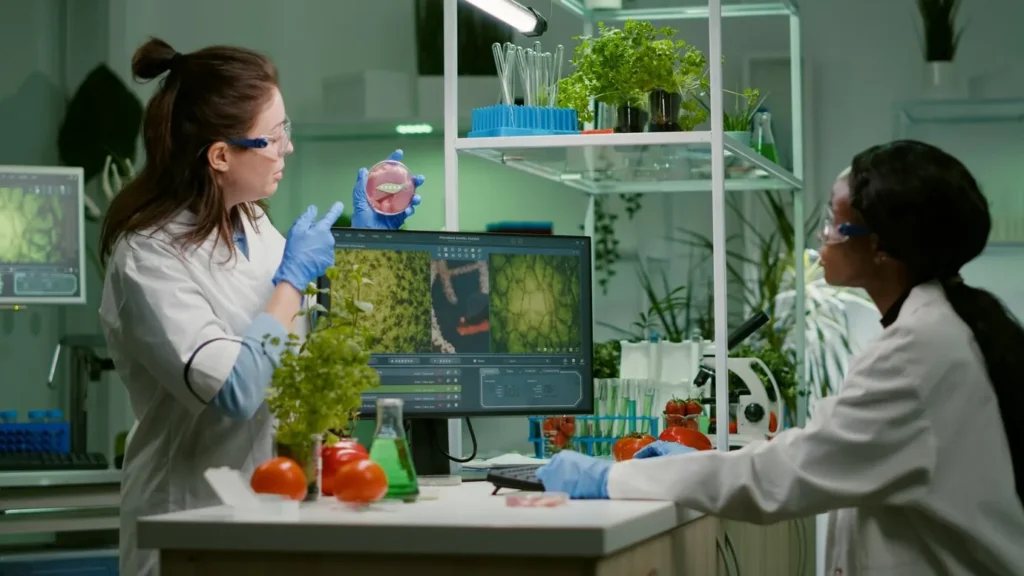
Laboratory technology has far-reaching effects across multiple industries and research areas:
Medical Research and Healthcare
In clinical research, laboratory technicians:
- Process patient samples for diagnostic testing
- Support the development of new treatments and medications
- Contribute to clinical trials by analyzing trial data
- Help identify disease biomarkers
A study by the Journal of Clinical Laboratory Analysis found that 70% of medical decisions rely on laboratory test results, underscoring the importance of this field.
Pharmaceutical Industry
In pharmaceutical testing, laboratory technicians:
- Analyze the composition and purity of drug compounds
- Test drug efficacy and safety through controlled experiments
- Monitor quality control in manufacturing processes
- Support drug development research
The global pharmaceutical analytical testing market was valued at $5.6 billion in 2023 and is projected to reach $9.6 billion by 2028, according to Research and Markets.
Environmental Science
Within environmental science, lab professionals:
- Analyze soil, water, and air samples for contaminants
- Monitor pollution levels and environmental changes
- Test environmental impact of various substances
- Support conservation research efforts
Environmental laboratory testing has become increasingly important, with the market expected to grow at a rate of 7.2% from 2023 to 2028, driven by increasing concerns about environmental monitoring and public health safety.
Food Science and Agriculture
In food science laboratories, technicians:
- Test food products for safety and nutritional content
- Analyze agricultural products and soil samples
- Develop improved food preservation methods
- Research sustainable agricultural practices
Education and Training for Science Laboratory Technology
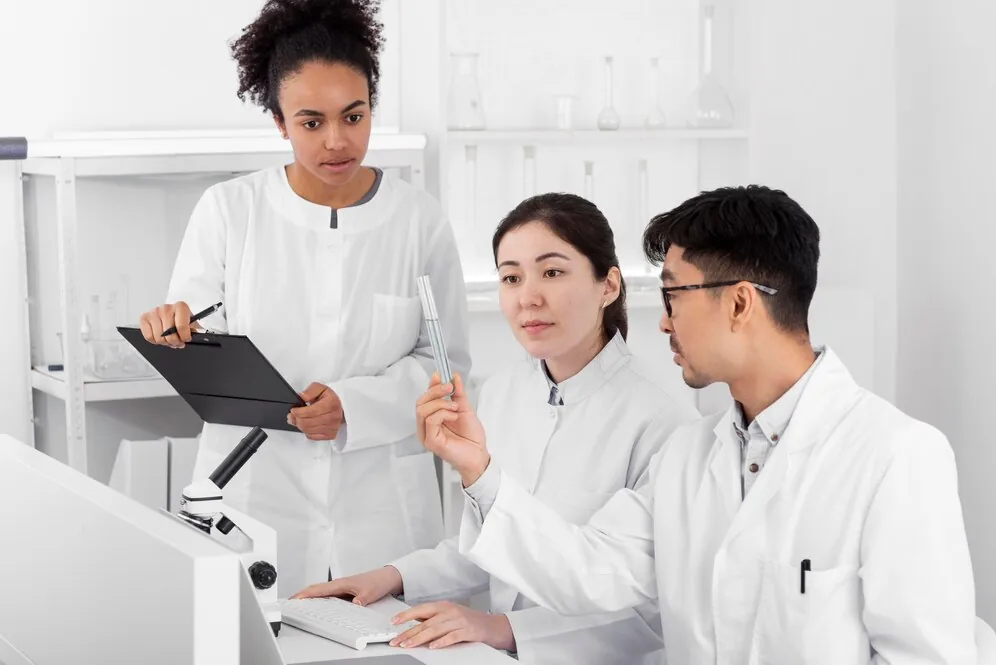
Becoming a skilled laboratory professional requires specific education and training programs that combine theoretical knowledge with practical experience.
Academic Programs and Requirements
Several educational pathways can lead to a career in laboratory science technology:
Diploma Programs
Many technical colleges offer SLT diploma programs that typically:
- Last 1-2 years
- Cover fundamental principles of laboratory science
- Include hands-on training with common laboratory equipment
- Provide entry-level qualifications for laboratory technician positions
These programs often serve as a starting point for those wishing to enter the field quickly.
Associate and Bachelor’s Degrees
More comprehensive education options include:
- Associate Degree in Science Laboratory Technology: A two-year program that balances general education requirements with specialized lab courses.
- Bachelor’s Degree in Laboratory Science: A four-year program offering deeper knowledge of the physical sciences, chemistry, and biology, along with advanced laboratory techniques.
According to the American Society for Clinical Pathology, professionals with bachelor’s degrees earn approximately 15-20% higher salaries than those with diplomas or associate degrees.
Essential Course Components
A typical laboratory technology program includes:
- Core Science Courses:
- Chemistry (general, organic, analytical)
- Biology
- Physics
- Biochemistry
- Microbiology
- Specialized Laboratory Courses:
- Clinical laboratory techniques
- Analytical instrumentation
- Sample preparation and analysis
- Chemical technology
- Biotechnology methods
- Practical Components:
- Laboratory practica
- Research projects
- Internships in real laboratory settings
- Professional Skills:
- Laboratory safety training
- Documentation and reporting
- Quality control procedures
- Ethical practices in scientific research
Necessary Skills for SLT Professionals

Success in science laboratory technology requires a combination of technical expertise and soft skills that enable professionals to excel in laboratory settings.
Technical Skills
Lab technicians need proficiency in:
- Analytical techniques: Understanding and applying various methods for analyzing samples and specimens.
- Instrument operation: Familiarity with laboratory equipment ranging from microscopes to advanced analytical instruments.
- Data analysis: Ability to interpret complex data sets and recognize patterns or anomalies.
- Laboratory protocols: Knowledge of standard operating procedures and methodologies for different types of tests.
- Computer literacy: Proficiency with laboratory information management systems (LIMS) and specialized software.
Soft Skills
Beyond technical knowledge, successful laboratory technicians possess:
- Attention to detail: Precision is essential when working with samples and sensitive equipment.
- Critical thinking: Ability to solve problems and make decisions based on scientific principles.
- Communication: Clear documentation and effective collaboration with colleagues.
- Time management: Efficient handling of multiple tasks and priorities in a busy laboratory environment.
- Adaptability: Willingness to learn new techniques and adjust to evolving technologies.
A survey by the American Society for Clinical Laboratory Science found that employers rank attention to detail (92%) and critical thinking skills (88%) as the most valuable attributes in laboratory professionals.
Career Opportunities in Laboratory Science Technology
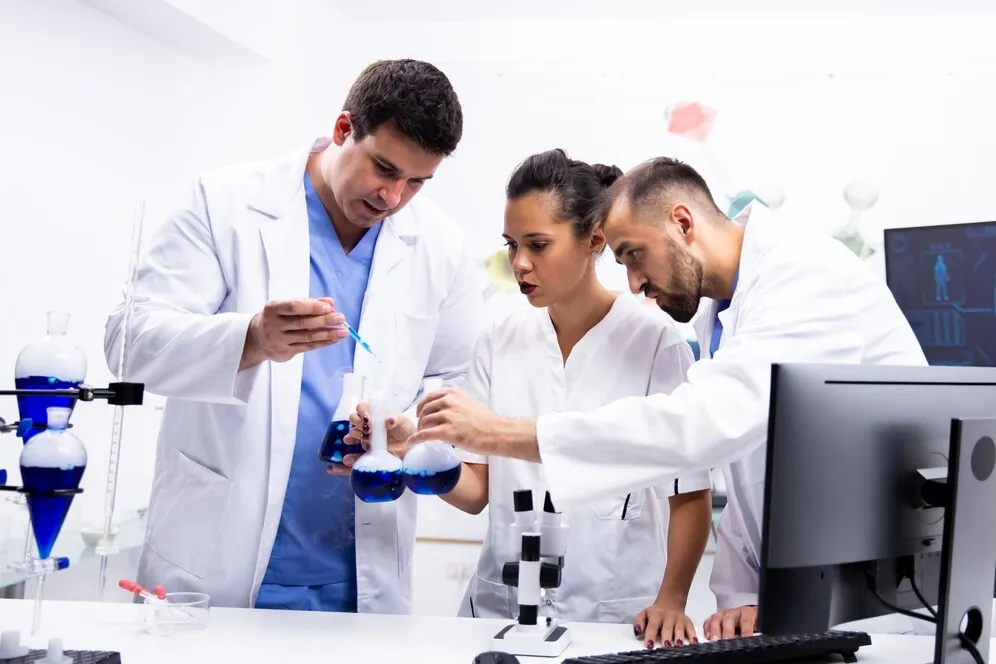
The field of laboratory science technology offers diverse career paths across various industries and specialized areas of research.
Industries Employing Laboratory Technicians
Science laboratory technology graduates find work opportunities in:
- Healthcare: Hospitals, clinical laboratories, and diagnostic centers
- Pharmaceutical companies: Research labs, quality control departments, and manufacturing facilities
- Biotechnology firms: Research and development departments focused on innovative biological applications
- Academic institutions: University research laboratories and educational facilities
- Government agencies: Public health laboratories, environmental monitoring agencies, and research institutions
- Food and beverage industry: Quality testing and product development laboratories
- Environmental testing firms: Organizations monitoring pollution and environmental quality
According to the Bureau of Labor Statistics, employment of clinical laboratory technologists and technicians is projected to grow 7% from 2023 to 2033, faster than the average for all occupations.
Specialized Roles in Laboratory Technology
As professionals gain experience, they can specialize in various fields:
- Medical Laboratory Technician: Performs routine tests in clinical settings to help diagnose and treat diseases.
- Research Laboratory Technician: Supports scientific research by conducting experiments and analyzing results.
- Quality Control Technician: Ensures products meet specific standards through systematic testing.
- Clinical Research Coordinator: Manages and oversees clinical trials, working with research participants and scientists.
- Forensic Laboratory Technician: Analyzes evidence for criminal investigations.
- Environmental Laboratory Analyst: Tests environmental samples to monitor pollution and ecological health.
Career Growth and Advancement
With additional education and experience, laboratory technicians can advance to:
- Laboratory Manager: Overseeing laboratory operations and staff
- Quality Assurance Manager: Directing quality control programs
- Laboratory Director: Leading research initiatives and programs
- Specialized Analyst: Focusing on specific testing areas like molecular diagnostics
- Education and Training Specialist: Teaching laboratory techniques to students or new staff
The Future of Science Laboratory Technology in Research
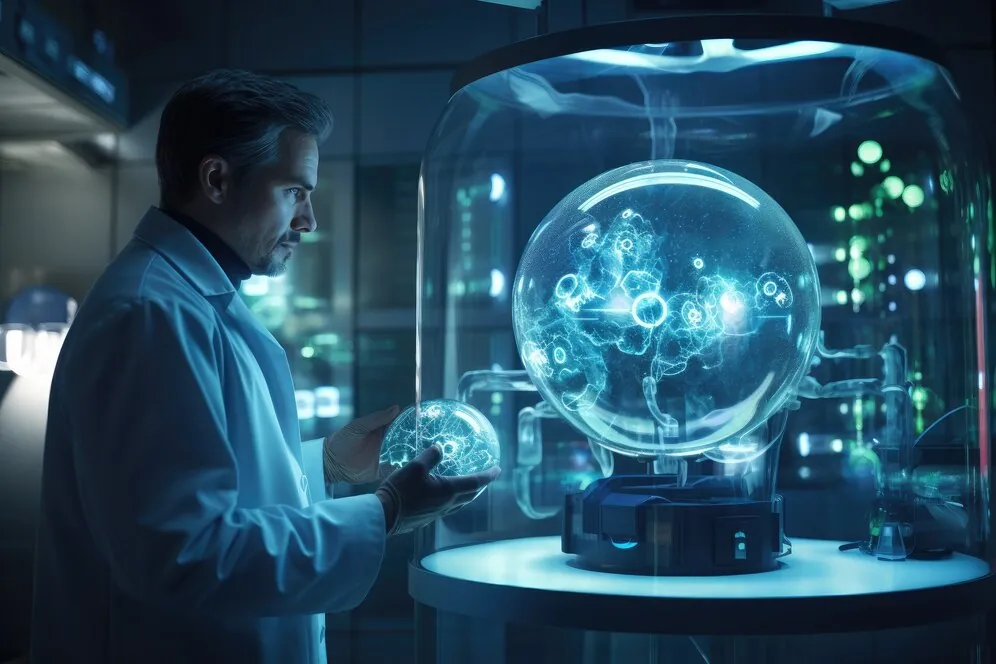
The field of laboratory science technology continues to evolve with technological advancements and changing research needs.
Emerging Trends and Technologies
Several developments are shaping the future of laboratory work:
Integration of Artificial Intelligence
Artificial intelligence is changing laboratory practices by:
- Automating routine analytical tasks
- Identifying patterns in complex data sets
- Predicting experimental outcomes
- Improving diagnostic accuracy
A study by the Journal of Laboratory Automation found that AI implementation can reduce analysis time by up to 40% while improving accuracy by 15-20%.
Advanced Automation and Robotics
Laboratory automation is expanding through:
- Robotic sample handling systems
- Automated testing platforms
- High-throughput screening technologies
- Remote monitoring capabilities
The global laboratory automation market is expected to reach $8.4 billion by 2028, growing at a CAGR of 8.1% according to Grand View Research.
Precision Medicine and Personalized Testing
Laboratory technology is central to the advancement of precision medicine:
- Genetic testing and sequencing
- Biomarker identification
- Patient-specific drug response testing
- Customized treatment protocol development
The Precision Medicine Initiative, launched by the National Institutes of Health, relies heavily on laboratory professionals to process and analyze the biological samples that inform personalized treatment approaches.
Portable and Point-of-Care Testing
The miniaturization of laboratory technology has led to:
- Portable diagnostic devices
- Field-ready testing equipment
- Rapid on-site analysis capabilities
- Increased accessibility of testing in remote locations
Challenges and Opportunities in Laboratory Science
As the field advances, laboratory professionals face several challenges and opportunities:
Increasing Complexity of Testing
Modern laboratory work involves:
- More sophisticated analytical methods
- Integration of multiple testing platforms
- Interpretation of larger and more complex data sets
- Interdisciplinary approaches to research questions
This complexity creates opportunities for specialized expertise and continuous professional development.
Quality and Standardization
Maintaining quality in laboratory testing requires:
- Implementation of rigorous quality control measures
- Adherence to international standards
- Regular proficiency testing
- Continuous improvement of methodologies
The International Organization for Standardization provides frameworks like ISO 17025 that guide laboratories in maintaining consistently high-quality results.
Workforce Development
The laboratory field faces challenges in:
- Recruiting qualified professionals
- Providing continuing education for existing staff
- Adapting to rapidly changing technologies
- Transferring knowledge from retiring professionals to newcomers
Global Perspectives on Laboratory Science Technology
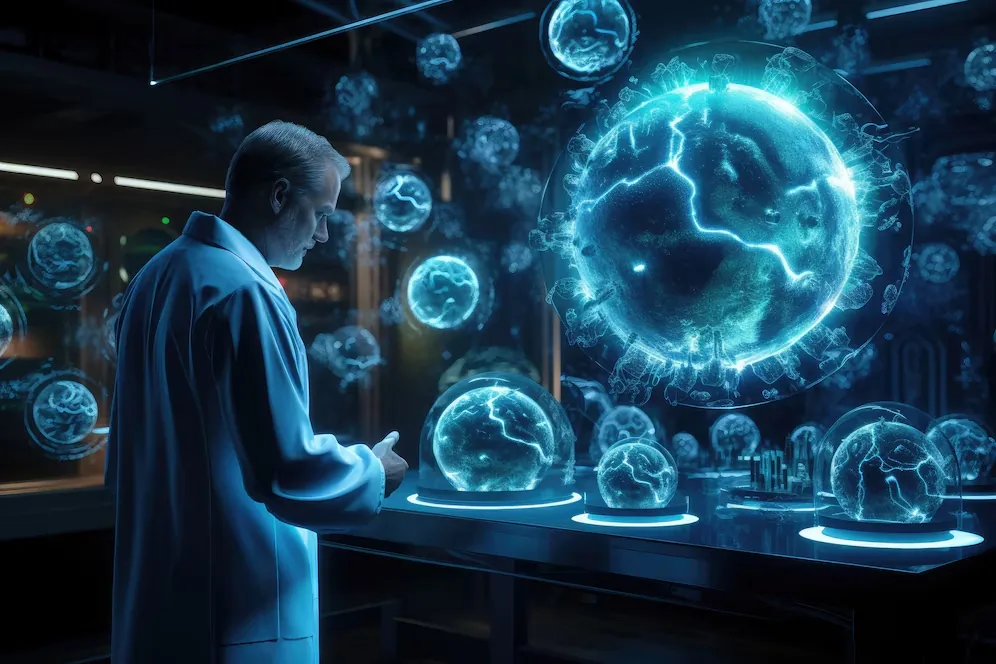
The field of laboratory science technology varies across different regions, with both developed and developing countries facing unique challenges and opportunities.
Developed Countries
In countries like the United States, Canada, and those in Western Europe:
- Laboratory technology is highly advanced with state-of-the-art equipment
- Regulatory frameworks are well-established
- Career pathways are clearly defined
- Research funding is relatively abundant
These countries often lead in developing new laboratory methodologies and technologies that eventually spread globally.
Developing Nations
In regions such as parts of Africa, Asia, and South America:
- Laboratory infrastructure may be limited or concentrated in urban areas
- Access to advanced equipment can be challenging
- Educational programs may have fewer resources
- There is often significant demand for trained professionals
Global Collaboration
International cooperation in laboratory science includes:
- Knowledge sharing across borders
- Technology transfer programs
- Standardization of laboratory practices
- Collaborative research initiatives
Frequently Asked Questions
What qualifications do I need to become a laboratory technician?
Entry-level positions typically require at least an associate’s degree or diploma in science laboratory technology or a related field. However, many employers prefer candidates with bachelor’s degrees for more advanced positions. Certification from organizations like the American Society for Clinical Pathology (ASCP) can also enhance employment prospects.
How long does it take to complete a science laboratory technology program?
Program duration varies: diploma programs typically take 1-2 years, associate degrees require approximately 2 years, and bachelor’s degrees take about 4 years to complete. Many programs include internship components that provide valuable hands-on experience.
What is the salary range for laboratory technology professionals?
Salaries vary based on education, experience, specialization, and location. According to the Bureau of Labor Statistics, the median annual wage for clinical laboratory technologists and technicians was approximately $57,800 as of 2023, with the top 10% earning more than $81,000. Specialized roles and management positions typically command higher salaries.
Do laboratory technicians need to be certified?
While certification requirements vary by state and employer, many positions require or strongly prefer professional certification. Common certifications include Medical Laboratory Technician (MLT) or Medical Laboratory Scientist (MLS) from the American Society for Clinical Pathology (ASCP).
What is the difference between a laboratory technician and a laboratory technologist?
Laboratory technicians typically have associate degrees and perform routine laboratory tests following established procedures. Laboratory technologists usually hold bachelor’s degrees, perform more complex analyses, develop testing protocols, and may supervise technicians. Technologists generally have more responsibility and higher salaries.
How has COVID-19 impacted the field of laboratory technology?
The COVID-19 pandemic significantly increased demand for laboratory professionals, particularly those with expertise in molecular diagnostics and PCR testing. It accelerated the development of rapid testing technologies and highlighted the critical importance of laboratory professionals in public health emergencies. The field has seen increased funding, technological innovation, and public recognition since 2020.
What advancement opportunities exist for laboratory professionals?
Career advancement paths include specialization in areas like molecular diagnostics or cytogenetics, progression to supervisory and management roles, moving into laboratory information systems, quality assurance positions, or transitioning to research and development. Some professionals pursue graduate degrees to become researchers or educators in the field.
How is technology changing the role of laboratory technicians?
Automation, artificial intelligence, and robotics are transforming laboratory work by taking over routine tasks. This shift means technicians need more expertise in operating and troubleshooting advanced instruments, data analysis, and quality assurance. Rather than reducing job opportunities, these changes are elevating the role of technicians to focus more on data interpretation, problem-solving, and specialized testing.
Can laboratory technology skills transfer to other careers?
Yes, laboratory skills are highly transferable. Professionals may move into fields such as pharmaceutical sales, medical device development, healthcare information technology, scientific writing, regulatory affairs, or biotechnology research. The analytical thinking, attention to detail, and technical knowledge gained in laboratory work are valuable across many industries.
What continuing education is required for laboratory professionals?
Most certifications require continuing education to maintain active status. Requirements typically include completing a certain number of continuing education units (CEUs) every 2-3 years. This ensures professionals stay current with evolving technologies, methodologies, and best practices in the field.
Summary
Science laboratory technology forms an essential foundation for modern scientific research across numerous industries. Laboratory professionals combine technical expertise with analytical skills to support scientific discovery, product development, healthcare diagnostics, and environmental monitoring. The field continues to evolve with technological advancements, creating new opportunities and challenges for those in the profession.
As research methods become increasingly sophisticated, the demand for skilled laboratory technicians and technologists grows, making science laboratory technology a field with strong career prospects and the potential for meaningful contributions to scientific progress. Educational programs ranging from diplomas to bachelor’s degrees provide multiple entry points to this dynamic profession, while continuing education and specialization offer pathways for career advancement.
Whether supporting groundbreaking medical research, ensuring product safety, or monitoring environmental health, laboratory technology professionals play a crucial but often behind-the-scenes role in advancing scientific knowledge and improving quality of life worldwide.

